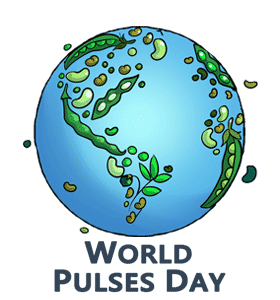

World Pulses Day
World Pulses Day Quick Facts - ZA
| HashtagsCompiled on | #WorldPulsesDay |
|---|---|
| Related Hashtags | #Pulses, #LovePulses, #Healthyfood |
| 2024 Date | 10 February 2024 |
| 2025 Date | 10 February 2025 |
2024 Holidays & Dates
| South Africa & Common Holidays | ||
| Misc. & Int'l. Observances | ||
| Christian Holidays | ||
| Jewish Holidays | ||
| Muslim Holidays |
|
|
|
|
